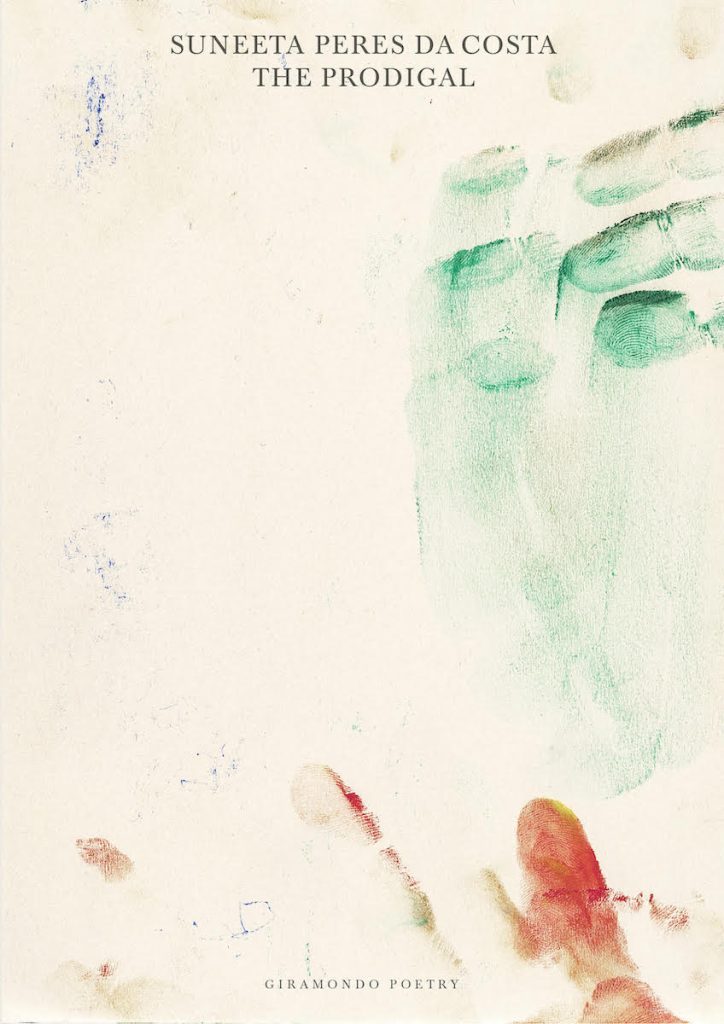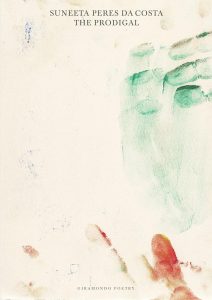A poem from The Prodigal by Suneeta Peres da Costa
The Prodigal
Reeds stuck to her unwashed hair
and her cheek was bruised from sleeping
on the long string of tulasī beads she’d
bought at a temple stall in Tiruchirappalli.
Unbeknown to her they would tattoo
her skin in the night, writing their faint,
inscrutable calligraphy. No less than road
signs or stars or the compass of her GPS
(when the Airtel Towers gave signal),
she placed faith in the skein of these
wooden auguries. If they broke, she’d
weigh again the argument of freedom
over sanctuary, wild arithmetic that had
led her away from what was promised,
already hers. Her sandals – loose from
the monsoon – had been repaired at mochī
twice over; and the clothes she had taken
quickly, in the dead of night, slipping by
undetected while the watchman slept –
yellowed, grown threadbare. Legs sore
from wandering, she quenched her thirst on
salt lassis in random pure-veg restaurants,
counting her cash and days under the aegis
of goddesses with supernumerary arms.
Slick with yoga and āyurveda, their earthly
consorts flexed lissom torsos next door,
while a man whose legs belied all algebra
described exponential circles in the market –
his vāhana a makeshift skateboard. Stooping
to offer her leftover bhaji puri, she recalled
the rheumy eyes of the family dog Prabhu,
to whom she’d secretly feed breakfast rotis
under the table – later vomited in the yard.
In Rishikesh she entered the arms of a pilgrim
who, as he kissed her, whispered an Upanisad
of Isha: ‘He who sees all beings in himself and
himself in all beings loses all fear’ – but sensing
only her own anxiety, she soon took to the hills.
Through the window of a toy train, workers’
children played a game, balancing on steel rods
of a building site; between them, a celestial drop;
then mountains, ranges – called Dhauladhar.
In that last town, monkeys kept her awake, running
across the tin roof of the guesthouse and stealing
apples the caretaker’s wife, suspecting she was ill,
left out for her. One morning, instinct directed
her to a doctor on the town outskirts; a sign on the
grubby, scarred door thus qualified his credentials:
‘Sex determination of foetus not performed here’…
Afterwards, she kept walking, now and again resting
on hay bales, until farmers chased her away.
As she entered the river to wash, she realised it
was the glacial cover she’d seen earlier forming
the current and in its swift stream caught sight
of the bright wings of birds. It hardly mattered
she could not identify them by name, for their
choruses swelled in her, soon grew unmistakable.
The titular poem from pp.1-2 of The Prodigal.


